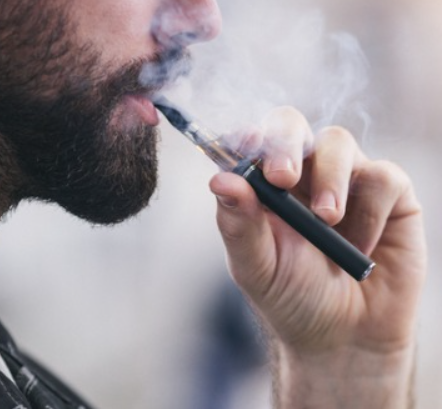When applying for life insurance, one of the key questions insurers ask is about your smoking habits. Many people don’t realize that different forms of smoking or substance use, including tobacco, marijuana, and vaping, can influence your life insurance premiums. These habits can affect how insurers classify you and determine your rates.
Can I Get Life Insurance If I Smoke, Vape, or Use Cannabis?
The short answer is yes—whether you smoke cigarettes, vape, or consume marijuana, you can still get life insurance. However, your premiums may vary depending on how these habits affect your health and how insurers classify you. If you’re a smoker or use marijuana, you may face higher premiums than non-smokers, but that doesn’t mean you can’t get coverage. Even if you have trouble qualifying for an underwritten policy, you can still find affordable coverage through simplified or no-medical life insurance options.
What Classifies You as a Smoker?
For life insurance purposes, a “smoker” is anyone who has used any form of tobacco or nicotine in the past 12 months. This includes:
- Cigarettes, cigars, and pipes
- E-cigarettes or vaping products
- Nicotine replacement products such as patches, gum, or other smoking cessation aids
If you smoke one cigar a week and test negative for nicotine on urine tests, you might still qualify as a non-smoker. But generally, you need to have been tobacco-free for at least a year to be considered a non-smoker. Some insurers, like Manulife, offer classifications based on how long you’ve been smoke-free, with longer periods of abstinence leading to lower premiums.
How Does Vaping and E-Cigarettes Affect Life Insurance?
Insurers typically classify individuals who use e-cigarettes or vape as smokers. Although vaping is seen as a less harmful alternative to traditional cigarettes, the long-term health risks are still being studied. Vaping can contain harmful substances, including nicotine, which leads to addiction and health issues like respiratory problems and higher blood pressure.
Because vaping shares many of the same health risks as smoking traditional cigarettes, insurers often treat vapers the same way, charging higher premiums compared to non-smokers.
How Does Marijuana Use Impact Life Insurance in Canada?
Since the legalization of marijuana in Canada, insurance companies have updated their policies regarding cannabis users. In the past, marijuana smokers were typically classified the same as tobacco smokers, which led to higher premiums. However, most insurers now consider marijuana users as non-smokers, but with some limitations.
Typically, insurers allow up to 2 or 3 marijuana joints per week before classifying the individual as a smoker. If you exceed this limit, your premiums may be adjusted to reflect the higher risk associated with frequent marijuana use. For those who use marijuana daily, securing traditional life insurance can be challenging, but no-medical life insurance options may still be available, albeit with higher premiums.
What Life Insurance Companies Cover Marijuana Users?
Several life insurance providers in Canada are willing to insure marijuana users, offering policies that range from fully underwritten to simplified and no-medical options. The main consideration is how much marijuana you consume and how frequently, as each insurer has different thresholds for what qualifies as a smoker. For those looking for coverage, it’s important to work with an advisor who can help you navigate the options available and find the best policy based on your cannabis consumption.
How Long After Quitting Smoking Will I See a Drop in My Premiums?
If you’re a smoker and have recently quit, you’re likely wondering when your premiums will decrease. Most insurers require that you remain smoke-free for at least 12 months before they will classify you as a non-smoker and lower your premiums. However, some insurers may require a longer period, such as two or three years, without any tobacco or nicotine use. During this period, insurers may ask for medical records or conduct tests to confirm your smoking cessation.
Once you’ve been smoke-free for the required period, your life insurance premiums should decrease, potentially bringing them in line with non-smoker rates.
Will I Be Tested for Drug Use When Applying for Life Insurance?
When applying for a standard life insurance policy, insurers may require you to undergo a blood or urine test to confirm your nicotine or drug use, including marijuana consumption. If you prefer to avoid testing, you can opt for simplified or no-medical life insurance, which typically doesn’t require these tests. However, these types of policies may come with lower coverage amounts and higher premiums compared to traditional life insurance.
No-medical and simplified issue life insurance policies generally provide coverage amounts of $200,000 to $500,000, with some guaranteed issue policies offering even smaller amounts between $25,000 and $50,000. While these policies don’t require a medical exam, they often come with higher premiums and fewer benefits compared to fully underwritten policies.
Conclusion
Marijuana, vaping, and tobacco use can significantly impact your life insurance premiums in Canada, but that doesn’t mean you can’t get coverage. By understanding how insurers classify smokers and marijuana users, and knowing how long you need to be smoke-free to reduce your premiums, you can make informed decisions when choosing a life insurance policy. Whether you use nicotine products, vape, or consume marijuana, it’s important to shop around and find the right policy that suits your needs and lifestyle.
